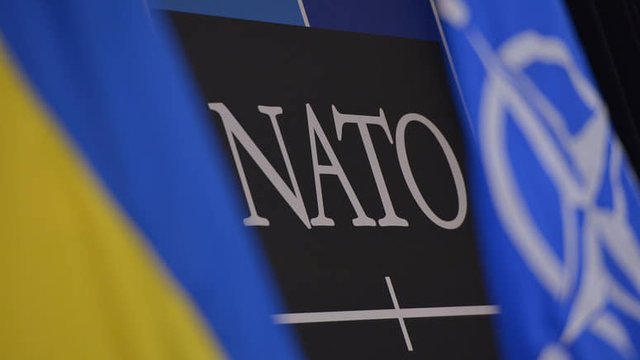Poll: 83% of Ukrainians back NATO membership, only 53% trust its ability to defend against Russia

NATO membership is considered the best way to ensure Ukraine's security by 42.4% of Ukrainians, in second place as a security guarantee are bilateral agreements with partner countries (16.9%), according to the results of a poll conducted by the Razumkov Center sociological service on September 12-17 at the request of Kyiv Security Forum.
As international organizations, the European Union is supported by 86.9% of respondents ("completely positively" 40.4%, "mostly positively" 46.5%), NATO by 76.1% (34.8% and 41.3%, respectively).
However, there is a categorical rejection of Shanghai Cooperation Organization (balance of attitudes -49.9%), the CSTO (-69.1%), and the BRICS (-69.1%).
Among those who would take part in the referendum on joining NATO, some 82.9% would vote in favor.
In the event of a referendum on joining the EU, some 81.7% of respondents would vote in favor, while 9% would vote against.
Some 53% believe in NATO's ability to defend itself in the event of an attack by Russia, while 26.2% do not believe. Some 26.4% of respondents are convinced that Russia is definitely going to attack one of the NATO countries, another 42.8% assume such a possibility.
On the other hand, some 35.3% of respondents consider joining NATO to be a completely reliable guarantee of security for Ukraine, and another 32.4% rather reliable. The creation of multilateral partnership guarantees at the level of state leaders regarding Ukraine's defense support is considered reliable by 22.9% and 39.4%, respectively, and the strengthening of the Armed Forces of Ukraine and Ukraine's defense capabilities without any restrictions and ensuring stable financing of the Armed Forces of Ukraine by 56.1% and 32.1%.
The creation of a 40-kilometer buffer zone between Ukraine and Russia within the peace agreement and the deployment of a European military contingent in Ukraine are considered quite reliable security guarantees by 29.8% of respondents, rather reliable by another 35.7%. The deployment of fighters of American private military companies in Ukraine is considered reliable guarantees by 29.3% + 30.7%, ensuring an effective sanctions policy by 38.5% + 27.8%, and the opening of the negotiation process on Ukraine's accession to the EU by 34.5% + 32.6%.
The EU as a whole is most often considered the leader in supporting Ukraine in the war with Russia – this opinion was expressed by 34.6% of respondents. The United States was named the leader in support by 21.9% of respondents, Great Britain by 10.6%, Germany by 5.7%, the Baltic countries (Latvia, Lithuania, Estonia) by 3.4%, the countries of Northern Europe (Denmark, Norway, Finland, Sweden) by 2.3%, France by 2.3%, and Poland by 1.5%.
Security guarantees from the EU as a whole are considered the most reliable, namely 61.9% of respondents are convinced that it will adhere to the guarantees and will be able to protect Ukraine. Regarding NATO, this figure is 54.8%, regarding Great Britain some 49.4%, regarding the United States some 44%, regarding Germany some 35.7%, the rest – less than 25%.
Some 63.8% of respondents are sure that the Baltic countries will adhere to the guarantees, but will not be able to protect Ukraine. Over 50% have the same opinion about Italy, the Czech Republic, Canada, Poland, France, and the countries of Northern Europe. About Germany some 48.3%, about Turkey some 46.1%, about the United States some 26%, about the EU as a whole some 23.9%.
Most Ukrainians are sure that Russia and China will not adhere to the guarantees if they provide them (90% and 74.3%, respectively). As for the United States, some 13.2% of respondents have the same opinion, about the EU as a whole some 5.9%.
The face-to-face survey was conducted in the territories controlled by the government of Ukraine among 1,210 respondents aged 18 and over using a stratified multi-stage sample using random selection at the first stages of sample formation and a quota method of selecting respondents at the final stage. The structure of the sample population reproduces the demographic structure of the adult population of the territories where the survey was conducted as of the beginning of 2022. The theoretical sampling error does not exceed 2.9%, additional systematic deviations of the sample may be due to the consequences of Russia's aggression.










